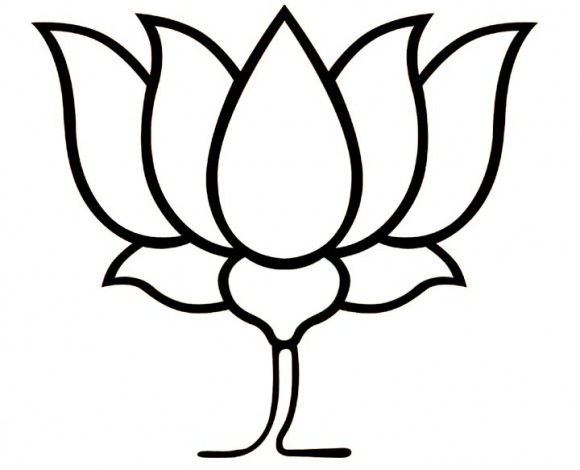Articles features
BJP's divisive impulses are test of India's plurality

The 12 percent increase in the BJP's vote share at the national level
between 2009, when it secured 18.8 percent, and 2014, when this rose to
31, showed that a fairly large section of those who did not constitute
the party's traditional support base had voted for it. The reason for
their support is known - Narendra Modi's promise of rapid economic
growth.
Two questions are relevant here. One is how many of those
who chose the BJP, probably for the first time, have remained with it?
The other is whether the party's traditional supporters, who seemingly
have less interest in the economy and development than in a pro-Hindu
outlook, are influencing the party's agenda.
According to a
recent survey, Modi's approval rating remains high. However, it is a
curious feature of present-day politics that support for the prime
minister cannot ipso facto be equated with support for his party. This
strange outlook of the voters was highlighted by the Delhi assembly
elections where the BJP was badly mauled.
But, otherwise, the
party was able to hold its own in states like Maharashtra, Haryana and
Jharkhand and even made inroads in Jammu and Kashmir. The outcome of the
civic elections in Madhya Pradesh, Rajasthan and Karnataka has also
underlined the BJP's continuing influence.
Although the party
appears to be well-entrenched, there is at least a section of its
non-traditional supporters who may have become uneasy about some aspects
of the government's policies.
To be fair, such disillusionment
is normal in any democracy where no ruling party can boast of cent
percent support. Even then, there are bound to be some in the party's 12
percent "extra" supporters who are currently engaged in mental
balancing acts between the government's positive and negative features.
While
they will be hoping that it will pursue the promised economic reforms,
they will also wonder whether an increasingly prosperous India will not
also harbour intolerant sectarian elements.
What is more, these
may not be driven by anti-Muslim sentiments alone as at the time of the
BJP's emergence from the margins of politics to centre-stage in the
1990s, but by attitudes involving minorities other than the Muslims
which can also open up a divide between sections of the Hindus
themselves, such as between vegetarians and non-vegetarians.
It
is not surprising that Mumbai, with its cosmopolitan mix of communities,
should be a focal point of such competitive parochialism and varying
dietary preferences with the compulsively vegetarian Jains being sought
to be placated with a ban on the consumption of meat during one of their
festivals and a counter move by the Shiv Sena and Navnirman Sena to
oppose the prohibition.
The controversy has been largely defused
by a judicial directive allowing the sale of meat. But what the uproar
has shown is how the BJP's record can be hit by the various divisive
impulses which are coming to the fore.
Mercifully, the
apprehensions of communal acrimony have subsided because the government
has apparently compelled the saffron hotheads to cool down. The attacks
on churches have stopped though not the killing of rationalists.
But
other issues which should have been allowed to remain very much in the
background have raised their heads. Vegetarianism is one of them and the
promotion of Hindi another. An RSS mouthpiece, Panchjanya, has argued
that English should be "chased away" and Hindi encouraged "to become an
organ of Bharat's self-respect, progress and pride".
Although the
Panchjanya remembers the anti-Hindi agitation of the 1960s in Tamil
Nadu, which made Jawaharlal Nehru say that English will remain one of
the official languages as long as the non-Hindi speakers want it, the
magazine tries to circumvent the episode by saying that "conspiracies
were hatched to organize other Indian languages against Hindi" without
advancing any credible evidence of such sinister plots.
Probably,
the Rashtriya Swayamsevak Sangh (RSS) will ask the newly-appointed
saffron apparatchiki in the Indian Council of Historical Research to
unearth such proof. As a member of the Hindutva lobby has noted in the
context of the saying that history is written by victors, "the so-called
Hindu Right is the victor and a history will get a new coat of paint
and varnish and also numerous designer alterations".
If such
observations are regarded as not representative of official views, this
cannot be said of union Culture Minister Mahesh Sharma's statements on
imposing a ban on the sale of meat during the nine-day Navratri
festival, making Hindi compulsory in schools and including Ramayana and
Mahabharata in the school curriculum, but not the Bible and Quran since
these do not reflect India's "soul".
His most quotable quote,
however, was the observation that the former president, A.P.J. Abdul
Kalam, was a nationalist "despite being a Muslim".
Carrying on
from where the culture minister had left off, Home Minister Rajnath
Singh has ordered that all files should be signed in Hindi.
It is
yet to be seen whether these diktats are floaters intended to test the
public mood. But the non-saffron supporters of Modi cannot but be
concerned about the articulations of important people in the government
which contravene the country's pluralist norms.
(Amulya Ganguli is a political analyst. The views expressed are personal. He can be reached at amulyaganguli@gmail.com)



































